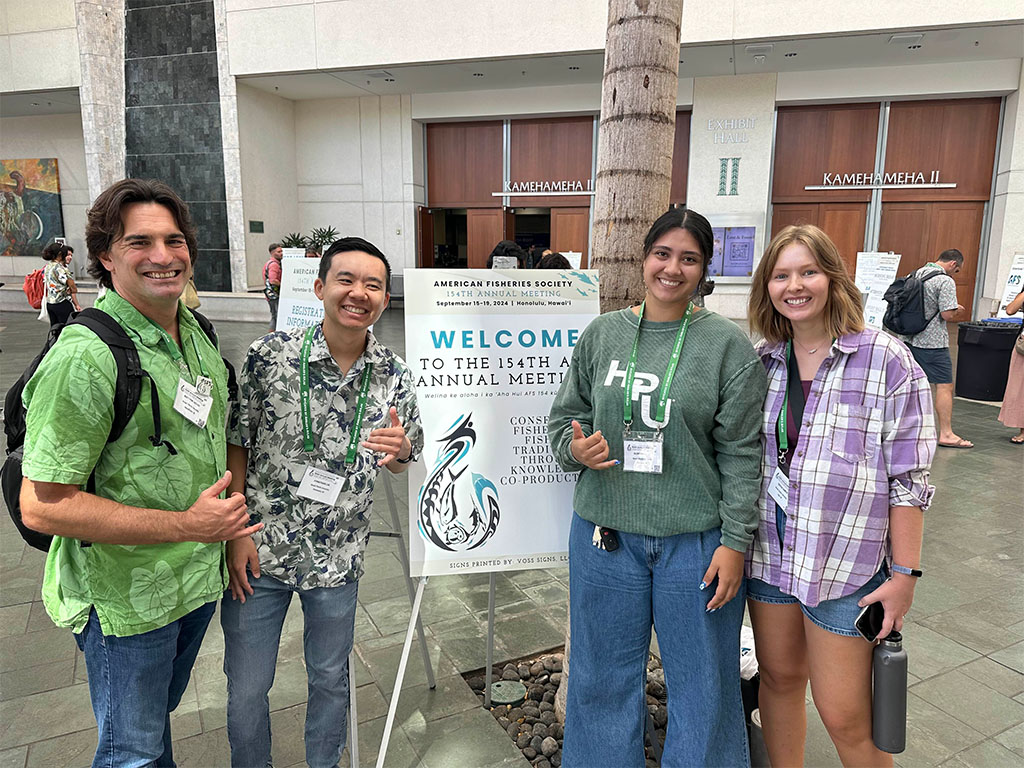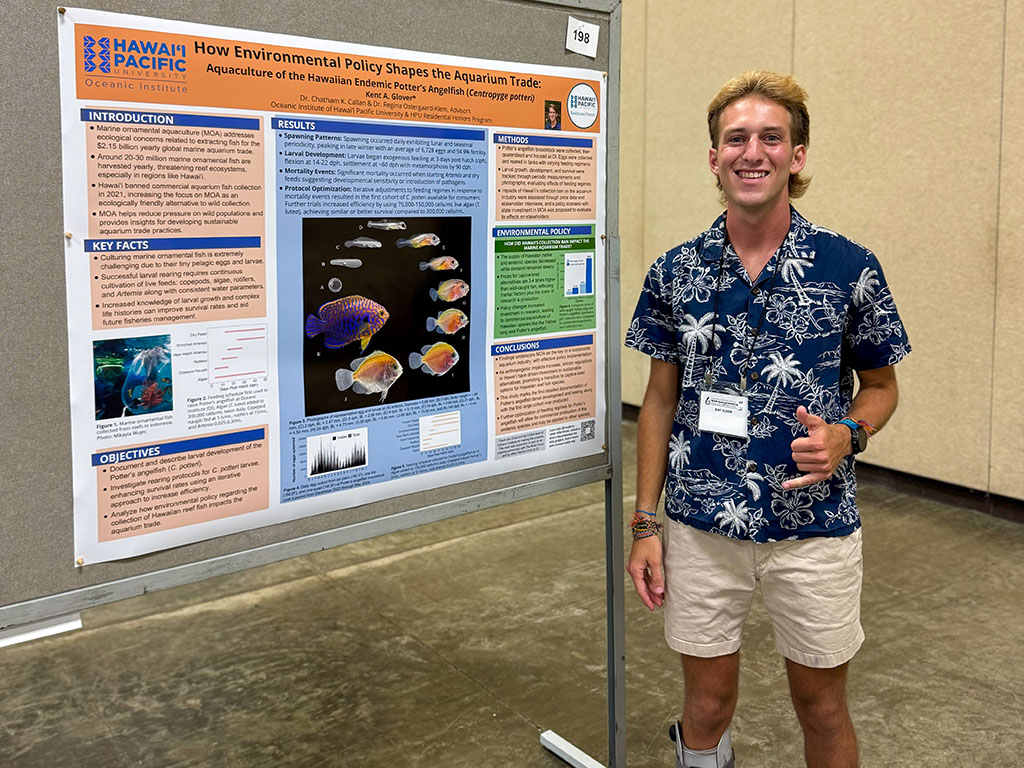This year's American Fisheries Society conference, held from September 15 to 19, brought the Hawaiʻi Convention Center to life as faculty and students from around the world showcased their research. Hawai‘i Pacific University faculty members, including Keith Korsmeyer, Ph.D., David Hyrenbach, Ph.D., Barbara Quimby, Ph.D., Matthew Iacchei, Ph.D., and representatives from the Poseidon Fisheries Group, participated alongside the next generation of marine scientists. Students Sophia Samus, Alondra Reyes, and recent graduates Kristian Kim and Kent Glover were among those eager to share their research and insights at this significant event.
Kent Glover, a Research Assistant at the Oceanic Institute of HPU Finfish Department who recently graduated with a Bachelor of Science in Marine Biology and a minor in Business Economics, and Sophia Samus, a student in the MSMS program who graduated from HPU with a B.S. in Marine Biology, have both been deeply influenced by the groundbreaking research at HPU, where they gained valuable hands-on experience.
Glover's interdisciplinary work focuses on the aquaculture of the Hawaiian endemic Potter's angelfish, examining how feeding regimens affect growth and rearing success while considering how environmental policies impact the aquarium trade. His project, which began as his Residential Honors Program thesis under the guidance of Chad Callan, Ph.D., and Regina Ostergaard-Klem, Ph.D., has made significant strides in documenting the early life history and aquaculture methods of these fish. This research marks the first detailed documentation of Potter’s angelfish aquaculture and has led to the first specimens ever produced for consumers. Glover is proud of his team’s dedication and hard work to make his project possible, “It’s truly surreal to see fish we raised at Oceanic Institute on display in aquariums around the world!”
Samus contributed her research with a presentation on the impacts of climate change on intertidal ecosystems. Her presentation, titled "Physiological and Molecular Responses to Thermal Stress in a Culturally Important Hawaiian Limpet," was part of the session "Beyond the Lab: How Can We Use Physiology to Inform Conservation?" Her talk focused on the thermal vulnerability of ʻopihi, a prized fisheries resource, showing that, ʻopihi may already be living near the maximum air temperatures they can tolerate. According to Samus, “this may have serious implications for the amount of habitat ʻopihi can occupy, which raises concerns for the future of this fishery.”
Reflecting on the conference, Iacchei, an Associate Professor of Marine Science, emphasized the importance of such opportunities for students: “We have such talented students doing interesting research in both our MSMS program and our MARS undergraduate degree here at HPU. When national or international science conferences like AFS occur in Hawaiʻi, it provides a great opportunity for our students to present their compelling research results to a broad audience and to network with a diverse group of professionals from a variety of career paths. A student's first conference can be especially nerve-racking, but the connections they make there can have a big impact on their future career. I think Sophi and Kent took full advantage of their opportunities at AFS and did a great job at showcasing the excellent work they have been doing at HPU's Waimānalo Makapuʻu campus and the Oceanic Institute."
The conference provided an excellent platform for Glover, Samus, and their peers to engage with fellow scientists, government officials, and community members eager to learn about their work. Glover’s efforts were recognized when he was named a finalist in the Best Student Poster Competition and ultimately won, marking a significant achievement for his research.
Looking back on their experiences, both students expressed gratitude for the opportunity to contribute to meaningful research at the Oceanic Institute. “I am truly grateful for the ability to be a part of and share the amazing research done at the Oceanic Institute,” Glover shared. “It means so much to me that I can make a real difference in this world, one fish at a time!”
As they look toward the future, both are eager to continue their efforts in shaping a sustainable future for Hawaiian marine life. This event not only showcased the innovative research being conducted at HPU but also underscored the collaborative spirit of the marine science community, inspiring future generations to pursue impactful change.






